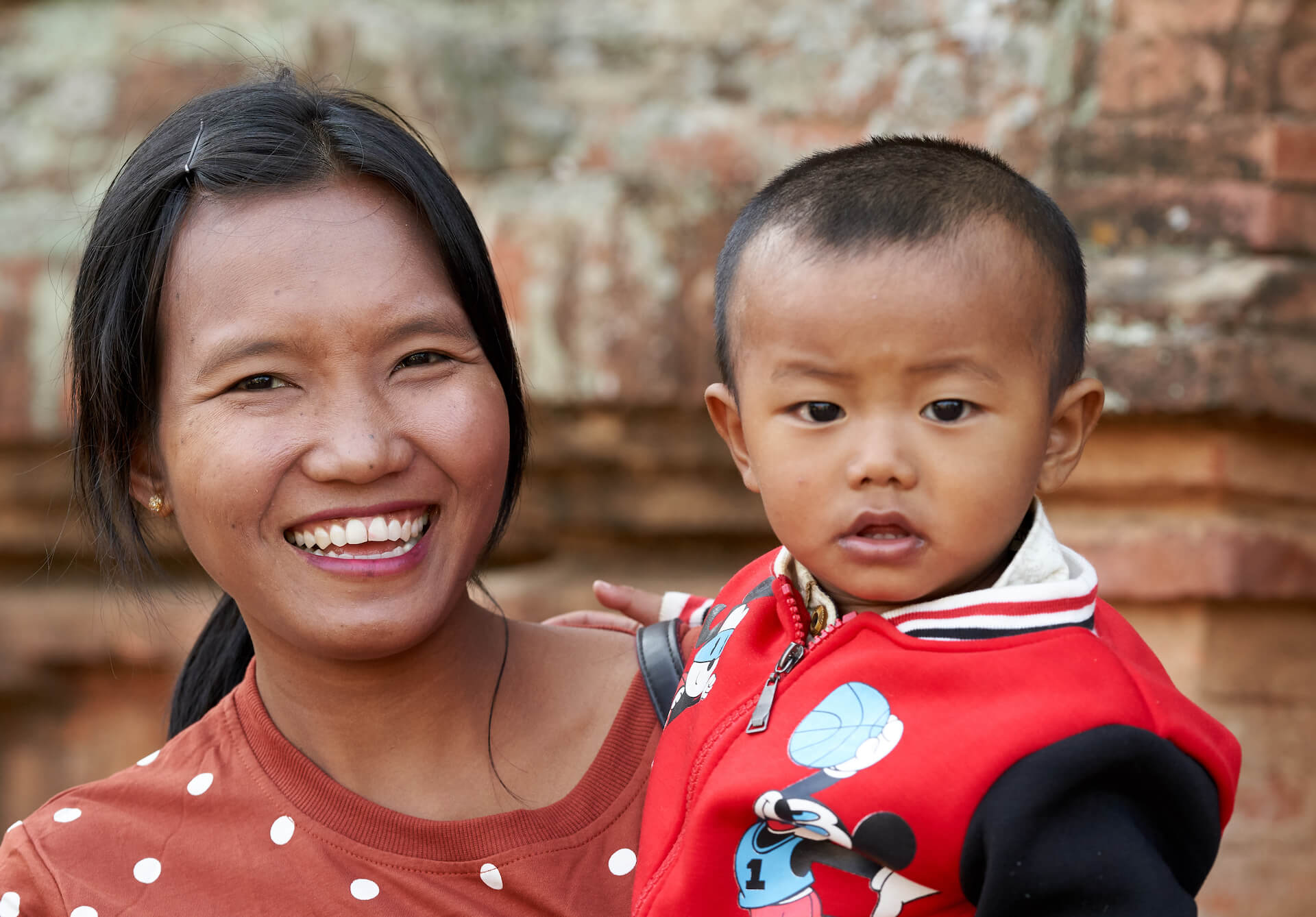For survivors of human trafficking, rescue is a matter of hours. Restoration is the matter of a lifetime. Trauma-informed care for human trafficking survivors is crucial for achieving that restoration.
That’s why The Exodus Road’s Beyond Rescue program is standing alongside survivors long after the moment of a raid. At Freedom Home, our safe house in Thailand, we offer medical care, career and entrepreneurship training, and therapeutic support. In order to be effective in fostering long-term restoration, each of these programs operates with a trauma-informed approach. Here are six key components of trauma-informed aftercare for human trafficking survivors.
1. Understand human trafficking trauma
Understanding what trauma-informed care is and why it matters begins with understanding trauma. Trauma refers to lived experiences that exceed an individual’s ability to cope. What constitutes trauma can vary from person to person. Psychology Today writes, “events are traumatic to the degree that they undermine a person’s sense of safety in the world and create a sense that catastrophe could strike at any time.”
Whether the traumatic event is a one-time experience (such as a natural disaster or assault) or the ongoing, inescapable situations that psychologists identify as complex trauma (such as the cycles of abuse endured by human trafficking survivors), trauma fundamentally changes the way people view the world. A survivor’s nervous system is rewired to react as though they are in constant danger.
That false view of reality is often reinforced by traffickers’ psychological manipulation. Days, months, or even years of dehumanization, invalidation, and abuse can erode a survivor’s sense of their own worth and perception of reality. This often makes it challenging for survivors to accept that what happened to them really was abusive. Often, their warped memory poses a barrier to getting accurate testimony in court.
The brain and body science of trauma is a complicated field, requiring equally complex and nuanced methods of trauma-informed care for human trafficking survivors.
2. Realize the widespread impact of trauma on human trafficking survivors
Realizing the widespread impact trauma has on survivors of human trafficking means acknowledging that trauma can affect a survivor’s wellbeing on every level. From the outside, it might seem like a survivor’s struggles are over once they’ve been removed from the situation where they were being exploited — after all, they’re no longer in contact with their trafficker. Unfortunately, it’s not that simple.
A study conducted by King’s College London evaluated the mental health of 130 survivors of human trafficking. It found that close to 80% of women and 40% of men experienced PTSD (post-traumatic stress disorder), depression, or anxiety. One common symptom of PTSD is the inability to separate past and present emotions. A survivor often relives the trauma through uncontrollable flashbacks, their brain and nervous system reverting to the same state of terror that they were in during the original event.
Providing trauma-informed care requires the recognition that there is no “quick fix” to repair the way unimaginable horrors have altered survivors’ bodies, hearts, and minds. For many individuals, their victimization is experienced as a thing of the present, not the past.

3. Recognize trauma’s signs and symptoms
Accurately identifying trauma’s signs and symptoms is the third necessary step toward trauma-informed care for human trafficking survivors. In research conducted by the London School of Hygiene and Tropical Medicine, a survivor shared a heartbreaking insight: “My inner world has changed… everything seems to be dark grey.”
This quote illustrates the detachment that often keeps survivors emotionally shut down. It’s important for care providers to understand that the numb state does not mean survivors haven’t been impacted by their experience; it’s actually likely the opposite. The emotions they experienced were so overwhelming that the only way to survive was total system shut down, a mode that became their new status quo.
Some other common emotional after-effects of trauma include intense anger or fear. Outbursts of rage and violence may be symptoms of a spirit that has run out of other ways to protect itself.
Trauma symptoms are not limited to mental and emotional expressions. Survivors might also experience insomnia and sleep disturbances, digestive problems, neurological illness, autoimmune disorders, and even seizures.
In The Body Keeps the Score, a seminal work on the brain-body trauma connection, Bessel van der Kolk writes, “The insidious effects of constantly elevated stress hormones include memory and attention problems, irritability, and sleep disorders. They also contribute to many long-term health issues, depending on which body system is most vulnerable in a particular individual.”
Recognizing trauma’s signs means identifying and caring for the ways it might be showing up in a survivor’s body, mind, and behaviors.

4. Implement trauma-informed policies and procedures
Once a provider has realized the pervasive presence of trauma and recognized what it looks like, the next step is implementing practices that are responsive to survivors’ experiences.
According to the CDC, giving survivors autonomy and agency is an essential part of trauma-informed policy. That means empowering survivor choice and collaboration rather than dictating their rehabilitation path for them. Given the deep wounds to survivors’ innate ability to trust, it’s imperative that aftercare services are offered with transparency. Policies should also be consistently implemented. This can offer the balance between a protective structure and empowering autonomy, repairing the wounds inflicted by chaos and a lack of agency.
When planning policies and procedures, The Exodus Road’s aftercare work prioritizes honoring the sociocultural lenses that every survivor brings from their cultural background. The norms and values of an individual’s community of origin will impact the way they make meaning out of the trauma they have been subjected to. For victims who have been geographically displaced by their traffickers, that sudden severing from their home culture is often a unique trauma.
Survivors also must relearn how to be safe in their own bodies. Breathwork, mindfulness, and yoga are some effective ways to achieve this. The career skills training that happens through Freedom Home’s program is also an essential part of restoring a survivor’s sense of power, proficiency, and purpose.
5. Prevent retraumatization for trafficking survivors
A sad reality in anti-trafficking work is that without appropriate aftercare, revictimization rates are high. Because being trafficked warps perception and erodes the sense of self, exploitation can, paradoxically, feel safer than the terrifying unknowns of freedom. A lack of sufficient financial resources also makes this outcome tragically common.
Even if survivors avoid becoming ensnared again, the restoration process is rife with opportunities to become retraumatized. Medical professionals can unknowingly reinforce trauma by neglecting to explain all parts of a patient’s care or denying them informed consent. Asking survivors to revisit traumatic experiences for legal reasons before they’re equipped to deal with the resulting distress can be deeply damaging. Even offhand comments that have a subtle victim-blaming tone can trigger unbearable shame for survivors.
Creating a safe environment with clear expectations is crucial for effective, trauma-informed aftercare for human trafficking survivors.

6. Rebuild hope through trauma-informed aftercare for human trafficking survivors
There’s good news: Evidence tells us that the impact of trauma can be reduced and integrated into a survivor’s life. It can become a past experience rather than a constant and inescapable source of fear.
The Exodus Road’s operatives have personally witnessed that rehabilitation is possible. Brave advocacy work led by trafficking survivors around the world further attests to that truth.
Trauma-informed care does not offer an absolute promise of healing, but it does offer the potential of healing where none might otherwise exist.
Trauma-informed care can support survivors in becoming more fully actualized versions of themselves than ever before. They can experience the profound process of constructing meaning from their pain. Rather than simply erasing the damage of trauma, they can integrate it into a redemptive and meaningful new way of living.
At The Exodus Road’s Freedom Home safe house, women receive trauma-informed care so that they can be mentally, physically, and emotionally restored. Will you join us in covering the costs of trauma-informed aftercare for women freed from human trafficking? Your gift ensures that a survivor gets the compassionate care she needs at this crucial moment.






